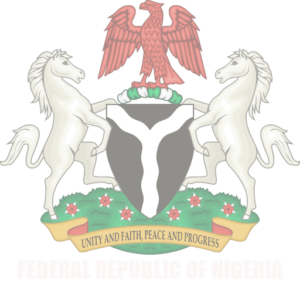Formal Launch of e-ID Card in Nigeria
PRESIDENT GOODLUCK EBELE JONATHAN, GCFR UNVEILS NATIONAL ELECTRONIC IDENTITY (E-ID) CARD IN NIGERIA
President Goodluck Jonathan on Thursday, 28th August, 2014 received his National Electronic (e-ID) card, heralding the official launch of the e-ID pilot program in the country.
In the pilot phase, the Nigerian Identity Management Commission (NIMC) will issue MasterCard-branded identity cards with electronic payments functionality to 13 million Nigerians. This initiative is the largest rollout of a biometric-based verification card with an electronic payment solution in the country and the broadest financial inclusion program in Africa.
The e-ID card forms a key component of the Nigerian Identity Management System, deployed by NIMC as part of its mandate to create, maintain and operate the country’s first central National Identity Database and provide proof of identity to Nigerians 16 years and older.
With 13 applications, including MasterCard’s prepaid payment technology and Cryptovision’s biometric identification technology, the e-ID card will provide millions of Nigerians – the majority of whom have never had access to a banking product – with the security, convenience and reliability of electronic payments.
At a celebratory event held in Abuja, His Excellency President Goodluck Jonathan said: “I am happy that this important milestone of the rollout of the National Identity Management System has been realized today. I am impressed with the quality of the e-ID card and the work of the corporate partners that made it possible. I commend especially MasterCard, and Access Bank Plc, as well as the Commission [NIMC] for achieving a world-class product.”
He said the card builds a window to a social security benefit system and therefore, it is a card every Nigerian should get. NIMC is working with several government agencies to integrate and harmonize all identity databases including the Driver’s License, Voter Registration, Health Insurance, Tax, SIM and the National Pension Commission (PENCOM) into a single, shared services platform. “The National e-ID program enables us to create an optimized common platform for Nigerian citizens to easily interact with the various government agencies and to transact electronically,” says Barr. Chris ‘E Onyemenam, Director General and CEO of NIMC. “There are many use cases for the card, including the potential to use it as an international travel document, which will have significant implications for border control in Nigeria and West Africa.”
“In close collaboration with both the public and private sectors to achieve the full potential of this program, NIMC is focused on inclusive citizenship, more effective governance, and the creation of a cashless economy, all of which will stimulate economic growth, investment and trade,” he adds.
Through the collaborative efforts of NIMC (the project lead), MasterCard (payments technology provider), Unified Payment Services Limited (payments processor), Cryptovision (Public Key Infrastructure and Trust Services Provider), and pilot issuing banks including Access Bank Plc, 13 million Nigerians will gain access to state-of-art financial services as part of the pilot program.
“This is a memorable occasion for MasterCard as we witness the start of a financial inclusion program that is unprecedented in scale and scope,” says Daniel Monehin, Division President of Sub-Saharan Africa, MasterCard. “Combining an identity card with MasterCard’s prepaid payment capability creates a game changer as it breaks down one of the most significant barriers to financial inclusion – proof of identity – while simultaneously enabling Nigerians to access the global economy.” He said the broader economic impact of the card will be felt as the previously unbanked and under-banked are able to gain access to the mainstream economy, and the visibility of their assets allows them to build a financial history and establish credit-worthiness with financial institutions.
Using the card as a payment tool, Nigerians can deposit funds, receive social benefits, save, or engage in many other financial transactions that are facilitated by electronic payments with the extra security assurance that biometric verification provides. They can also pay for goods and services and withdraw cash at millions of merchants and ATMS that accept MasterCard payment cards in Nigeria and in more than 210 countries and territories globally. MasterCard has unsurpassed merchant acceptance; no other brand is more widely accepted. The card also has the added safety and security benefits offered by the EMV Chip and Pin standard.
Group Managing Director, Access Bank Plc Herbert Wigwe, said: “Access Bank is a supporter and promoter of innovative ideas that would improve the quality of lives of Nigerians. This initiative provides another opportunity to highlight our commitment to national development and nation building.”
To receive the e-ID card, Nigerians aged 16 and above need to register at one of the hundreds of NIMC enrolment centres nationwide. The enrolment process involves the recording of an individual’s demographic data and biometric data (capture of 10 fingerprints, facial picture and Iris) to authenticate the cardholder and ensure that there are no duplicates on the system. Upon registration, NIMC issues each Nigerian with a unique National Identification Number (NIN), followed by the national e-ID card.
Upon completion of the pilot program, NIMC will introduce more than 100 million cards to Nigeria’s 167 million citizens.
Corporate Communications



